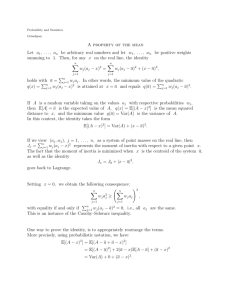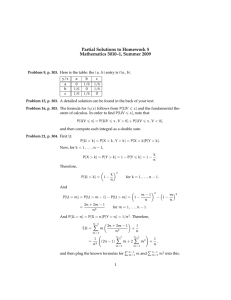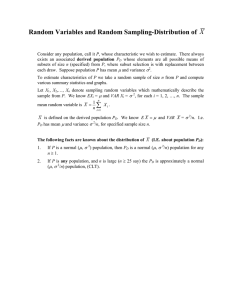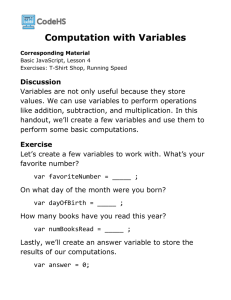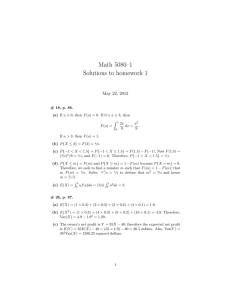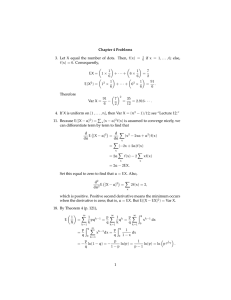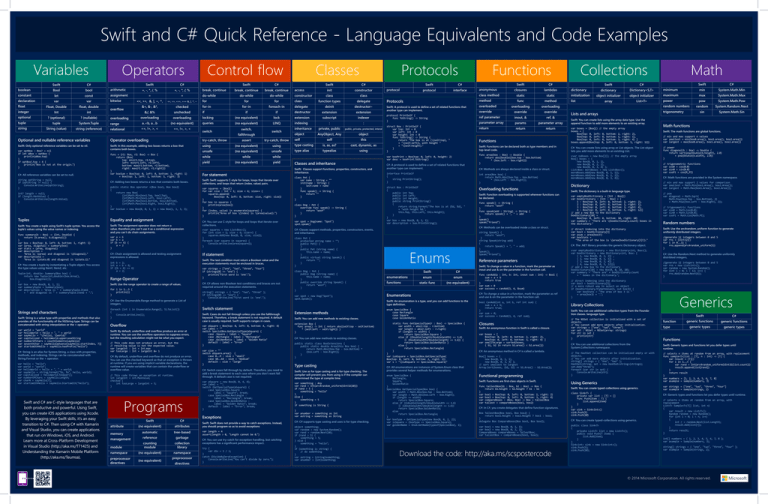
Swift and C# Quick Reference - Language Equivalents and Code Examples
Variables
Swift
C#
boolean
Bool
bool
constant
let
const
declaration
var
var
Float, Double
float, double
integer
Int
int
optional
? (optional)
? (nullable)
tuple
tuple
System.Tuple
string
String (value)
string (reference)
float
Operators
Control flow
class
class
function types
delegate
deinit
destructor~
destructor
extension
extension
lock
extension
subscript
indexer
LINQ
indexing
:
:
private, public
public, private, protected, interal
AnyObject, Any
object
self
this
is, as, as?
cast, dynamic, as
typealias
using
do-while
do-while
for
for
for-in
foreach-in
if
if
locking
(no equivalent)
queries
(no equivalent)
+, -, *, /, %
assignment
=
=
<<, >>, &, |, ~, ^,
<<, >>, <<=, >>= &, |, ^, ~
&+, &-, &*,
checked
&/, &%
unchecked
if
overloading
overloading
range
a..<b, a…b
(no equivalent)
relational
==, !=, >, <
==, !=, >, <
overloading
constructor
break, continue
+, -, *, /, %
overflow
init
break, continue
arithmetic
bitwise
C#
C#
C#
break, continue
do-while
for
for-in
switch
switch,
switch
fallthrough
access
constructor
class
delegate
inheritance
object
self
Optional and nullable reference variables
Operator overloading
try-catch, throw
Swift: Only optional reference variables can be set to nil.
Swift: In this example, adding two boxes returns a box that
contains both boxes.
using
(no equivalent)
using
type casting
unsafe
(no equivalent)
unsafe
type alias
while
while
while
yield
(no equivalent)
yield
var optBox : Box? = nil
if let aBox = optBox {
println(aBox.top)
}
if optBox!.top > 4 {
println("Box is not at the origin.")
}
C#: All reference variables can be set to null.
string optString = null;
if (optString != null) {
Console.WriteLine(optString);
}
int? length = null;
if (length.HasValue) {
Console.WriteLine(length.Value);
}
func + (r1: Box, r2: Box) -> Box {
return (Box(
top: min(r1.top, r2.top),
left: min(r1.left, r2.left),
bottom: max(r1.bottom, r2.bottom),
right: max(r1.right, r2.right)))
}
var boxSum = Box(top: 0, left: 0, bottom: 1, right: 1)
+ Box(top: 1, left: 1, bottom: 3, right: 3)
C#: Adding two boxes returns a box that contains both boxes.
public static Box operator +(Box box1, Box box2)
{
return new Box(
(int)Math.Min(box1.Top, box2.Top),
(int)Math.Min(box1.Left, box2.Left),
(int)Math.Max(box1.Bottom, box2.Bottom),
(int)Math.Max(box1.Right, box2.Right));
}
var boxSum = new Box(0, 0, 1, 1) + new Box(1, 1, 3, 3);
Tuples
Equality and assignment
Swift: You create a tuple using Swift’s tuple syntax. You access the
tuple’s values using the value names or indexing.
Swift: The assignment operator does not return a
value, therefore you can’t use it as a conditional expression
and you can’t do chain assignments.
func summary(b : Box) -> (Int, Double) {
return (b.area(), b.diagonal())
}
var box = Box(top: 0, left: 0, bottom: 1, right: 1)
var (area, diagonal) = summary(box)
var stats = (area, diagonal)
var description =
"Area is \(area) and diagonal is \(diagonal)."
var description2 =
"Area is \(stats.0) and diagonal is \(stats.1)."
C#: You create a tuple by instantiating a Tuple object. You access
the type values using Item1, Item2, etc.
Tuple<int, double> Summary(Box box) {
return new Tuple<int,double>(box.Area(),
box.Diagonal());
}
var box = new Box(0, 0, 1, 1);
var summaryTuple = Summary(box);
var description = "Area is " + summaryTuple.Item1
+ " and diagonal is " + summaryTuple.Item2 + ".";
var a
var b
if (b
a
}
= 6
= a
== 6) {
= 2
C#: Chain assignment is allowed and testing assignment
expressions is allowed.
int b = 2;
int a = b = 6;
if ((b = 6) == 6)
a = 2;
Swift: String is a value type with properties and methods that also
provides all the functionality of the NSString type. Strings can be
concatenated with string interpolation or the + operator.
var
var
var
var
var
var
var
world = "world"
helloWorld = hello + ", " + world
sayHello = "\(hello), \(world)"
capitalized = helloWorld.uppercaseString
numberOfChars = countElements(sayHello)
seventhChar = sayHello[advance(sayHello.startIndex, 7)]
startsWithHello = sayHello.hasPrefix("hello")
C#: String is an alias for System.String, a class with properties,
methods, and indexing. Strings can be concatenated with
String.Format or the + operator.
var
var
var
var
var
var
var
var
hello = "hello";
world = "world";
helloWorld = hello + ", " + world;
sayHello = string.Format("%s, %s", hello, world);
capitalized = helloWorld.ToUpper();
numberOfChars = sayHello.Length;
charN = sayHello[7];
startsWithHello = sayHello.StartsWith("hello");
Swift and C# are C-style languages that are
both productive and powerful. Using Swift,
you can create iOS applications using Xcode.
By leveraging your Swift skills, it’s an easy
transition to C#. Then using C# with Xamarin
and Visual Studio, you can create applications
that run on Windows, iOS, and Android.
Learn more at Cross-Platform Development
in Visual Studio (http://aka.ms/T71425) and
Understanding the Xamarin Mobile Platform
(http://aka.ms/Teumsa).
Range Operator
Swift: Use the range operator to create a range of values.
for i in 1...5 {
println(i)
}
foreach (int i in Enumerable.Range(1, 5).ToList())
{
Console.WriteLine(i);
}
Swift: By default, underflow and overflow produce an error at
runtime. You can use the overflow operators to suppress errors,
but the resulting calculation might not be what you expect.
// This code does not produce an error, but the
// resulting value is not the expected value.
var largeInt : Int = Int.max
var tooLarge : Int = largeInt &+ 1
C#: By default, underflow and overflow do not produce an error.
You can use the checked keyword so that an exception is thrown
at runtime. If you are using implicit variable declarations, the
runtime will create variables that can contain the underflow or
overflow value.
// This code throws an exception at runtime.
int largeInt = int.MaxValue;
checked {
int tooLarge = largeInt + 5;
}
Programs
Swift
C#
attribute
(no equivalent)
attributes
memory
automatic
tree-based
reference
garbage
counting
module
collection
library
(no equivalent)
namespace
module
namespace
preprocessor
directives
For statement
Swift: Swift supports C-style for loops, loops that iterate over
collections, and loops that return (index, value) pairs.
var squares = [Box]()
for var size : Int = 1; size < 6; size++ {
squares.append(
Box(top: 0, left: 0, bottom: size, right: size))
}
for box in squares {
println(area(box))
}
for (index, value) in enumerate(squares) {
println("Area of box \(index) is \(area(value)).")
}
(no equivalent)
preprocessor
directives
Classes and inheritance
Swift: Classes support functions, properties, constructors, and
inheritance.
class Pet {
var name : String = ""
init(name : String) {
self.name = name
}
func speak() -> String {
return ""
}
}
class Dog : Pet {
override func speak() -> String {
return "woof"
}
}
C#: You can use C-style for loops and loops that iterate over
collections.
var spot = Dog(name: "Spot")
spot.speak()
vvar squares = new List<Box>();
for (int size = 1; size < 6; size++) {
squares.Add(new Box(0, 0, size, size));
}
foreach (var square in squares) {
Console.WriteLine(area(square));
}
C#: Classes support methods, properties, constructors, events,
and inheritance.
If statement
Swift: The test condition must return a Boolean value and the
execution statements must be enclosed in braces.
C#: C# allows non-Boolean test conditions and braces are not
required around the execution statements.
string[] strings = { "one", "two", "three" };
if (strings[0] == "one") {
Console.WriteLine("First word is 'one'.");
}
Switch statement
Swift: Cases do not fall through unless you use the fallthrough
keyword. Therefore, a break statement is not required. A default
case is usually required. Swift supports ranges in cases.
Overflow
management
try-catch, throw
var strings = ["one", "two", "three", "four"]
if (strings[0] == "one") {
println("First word is 'one'.");
}
C#: Use the Enumerable.Range method to generate a List of
integers.
Strings and characters
assert
Protocols
Swift
Swift
Swift
Classes
var aSquare = Box(top: 0, left: 0, bottom: 4, right: 4)
var label = ""
switch SpecialBox.GetSpecialType(aSquare) {
case .Square : label = "Square"
case .Rectangle : label = "Rectangle"
case .GoldenRatio : label = "Golden Ratio"
default : label = "Error"
}
var size = ""
switch aSquare.area() {
case 0...9 : size = "small"
case 10...64 : size = "medium"
default : size = "large"
}
C#: Switch cases fall through by default. Therefore, you need to
add a break statement to each case where you don’t want fall
through. A default case is not required.
var aSquare = new Box(0, 0, 4, 4);
var label = "";
switch (GetSpecialType(aSquare)) {
case SpecialBox.Square :
label = "Square"; break;
case SpecialBox.Rectangle :
label = "Rectangle"; break;
case SpecialBox.GoldenRatio :
label = "Golden Ratio"; break;
default : label = "Error"; break;
}
Exceptions
Swift: Swift does not provide a way to catch exceptions. Instead,
you should program so as to avoid exceptions
var length = 4
assert(length > 0, "Length cannot be 0.")
C#: You can use try-catch for exception-handling, but catching
exceptions has a significant performance impact.
try {
var div = 1 / i;
}
catch (DivideByZeroException) {
Console.WriteLine("You can't divide by zero.");
}
protocol
Extension methods
Swift: You can add new methods to existing classes.
extension Box {
func area() -> Int { return abs((self.top - self.bottom)
* (self.left - self.right)) }
}
C#: You can add new methods to existing classes.
public static class BoxExtensions {
public static double Area(this Box box) {
return Math.Abs((box.Top - box.Bottom) *
(box.Left - box.Right));
}
}
Type casting
Swift: Use as for type casting and is for type checking. The
compiler will prevent you from using is if the compiler can
determined the type at compile time.
var something : Any
var rand = Int(arc4random_uniform(UInt32(10)))
if rand > 5 {
something = "hello"
}
else {
something = 5
}
if something is String {
}
var anumber = something as Int
var astring = something as String
C#: C# supports type casting and uses is for type checking.
object something;
var random = new System.Random();
var rand = random.Next(10);
if (rand > 5) {
something = 5;
} else {
something = "hello";
}
if (something is string) {
// do something
}
var astring = (string)something;
var anumber = (int)something;
C#
protocol
interface
Protocols
Swift
C#
closures
lambdas
class method
static
static
method
func
method
overloading
overloading
anonymous
Swift: A protocol is used to define a set of related functions that
another type can implement.
overloaded
protocol PrintSelf {
func ToString() -> String
}
override
override
override
ref parameter
inout, &
ref, &
parameter array
params
parameter array
return
return
return
struct Box : PrintSelf {
var top: Int = 0
var left: Int = 0
var height: Int = 0
func ToString() -> String {
return "The box is at (\(self.top), "
+ "\(self.left)), with height "
+ "\(self.height)."
}
}
var boxPrint = Box(top: 0, left: 0, height: 2)
var desc = boxPrint.ToString()
Swift: Function overloading is supported wherever functions can
be declared.
func speak() -> String {
return "woof"
}
func speak(add : String) -> String {
return speak() + ", " + add
}
speak()
speak("friend")
C#: Methods can be overloaded inside a class or struct.
string Speak() {
return "woof";
}
string Speak(string add)
{
return Speak() + ", " + add;
}
Speak();
Speak("friend");
functions
Reference parameters
enum
static func
(no equivalent)
Enumerations
Swift: An enumeration is a type, and you can add functions to the
type definition.
enum SpecialBox {
case Rectangle
case Square
case GoldenRatio
static func GetSpecialType(r : Box) -> SpecialBox {
var width = abs(r.top - r.bottom)
var length = abs(r.left - r.right)
if (length == width) {
return SpecialBox.Square }
else if ((Double(length)/Double(width) == 1.6)
|| (Double(width)/Double(length) == 1.6)) {
return SpecialBox.GoldenRatio }
else {
return SpecialBox.Rectangle}
}
}
var isASquare = SpecialBox.GetSpecialType(
Box(top: 0, left: 0, bottom: 2, right: 2))
var s = "\(isASquare == SpecialBox.Square)"
C#: All enumerations are instances of System.Enum class that
provides several helper methods for enumerations.
enum SpecialBox {
Rectangle,
Square,
GoldenRatio
}
SpecialBox GetSpecialType(Box box) {
var width = Math.Abs(box.Top - box.Bottom);
var length = Math.Abs(box.Left - box.Right);
if (length == width)
return SpecialBox.Square;
else if (((double)length/(double)width == 1.6)
|| ((double)width/(double)length == 1.6))
return SpecialBox.GoldenRatio;
else
return SpecialBox.Rectangle;
}
var boxType = GetSpecialType(new Box(0, 0, 2, 2));
var isSquare = (boxType == SpecialBox.Square);
var goldenName = Enum.GetName(typeof(SpecialBox), 1);
initialization
object initializer
object initializer
array
List<T>
list
Swift: To change a value in a function, mark the parameter as
inout and use & on the parameter in the function call.
func canAdd(a : Int, b: Int, inout sum : Int) -> Bool {
sum = a + b
return true
}
var sum = 0
var success = canAdd(3, 4, &sum)
C#: To change a value in a function, mark the parameter as ref
and use & on the parameter in the function call.
bool CanAdd(int a, int b, ref int sum) {
sum = a + b;
return true;
}
var sum = 0;
var success = CanAdd(3, 4, ref sum);
Closures
Swift: An anonymous function in Swift is called a closure.
var boxes = [
Box(top: 0, left: 0, bottom: 2, right: 2),
Box(top: 0, left: 0, bottom: 3, right: 4) ]
var smallToLarge = sorted(boxes,
{ b1, b2 in return b1.area() < b2.area()})
C#: An anonymous method in C# is called a lambda.
Box[] boxes = {
new Box(0, 0, 1, 1),
new Box(0, 0, 3, 4) };
// sort smallest to largest
Array.Sort(boxes, (b1, b2) => b1.Area() - b2.Area());
Functional programming
Swift: Functions are first-class objects in Swift.
func tallestBox(b1 : Box, b2 : Box) -> Box {
return b1.height > b2.height ? b1 : b1
}
var box1 = Box(top: 0, left: 0, bottom: 2, right: 2)
var box2 = Box(top: 0, left: 0, bottom: 3, right: 4)
var compareBoxes : (Box, Box) -> Box = tallestBox
var tallest = compareBoxes(box1, box2)
C#: In C#, you create delegates that define function signatures.
Box TallestBox(Box box1, Box box2) {
return box1.Height > box2.Height ? box1 : box2;
}
delegate Box CompareBoxes(Box box1, Box box2);
var box1 = new Box(0, 0, 1, 1);
var box2 = new Box(0, 0, 2, 2);
CompareBoxes compareBoxes = TallestBox;
var tallestBox = compareBoxes(box1, box2);
Download the code: http://aka.ms/scspostercode
Math
Swift
C#
minimum
min
System.Math.Min
maximum
max
System.Math.Max
power
pow
System.Math.Pow
random
System.Random.Next
sin
System.Math.Sin
random numbers
trigonometry
Lists and arrays
Swift: You can create lists using the array data type. Use the
append function to add more elements to an existing array.
vvar noBoxes = new Box[]{}; // the empty array
Box[] boxes = {
new Box(0, 0, 1, 1),
new Box(0, 0, 2, 2),
new Box(0, 0, 3, 4) };
List<Box> moreBoxes = new List<Box>();
moreBoxes.Add(new Box(0, 0, 1, 1));
moreBoxes.Add(new Box(0, 0, 2, 2));
moreBoxes.Add(new Box(0, 0, 3, 4));
Overloading functions
enum
Dictionary<S,T>
func area(box : Box) -> Double {
return abs(Double((box.top - box.bottom)
* (box.left - box.right)))
}
struct Box : PrintSelf
{
public int Top;
public int Left;
public int Height;
public string PrintString()
{
return string.Format("The box is at (%d, %d), "
+ "with height %d.",
this.Top, this.Left, this.Height);
}
}
var box = new Box(0, 0, 1, 1);
var description = box.PrintString();
enumerations
dictionary
dictionary
C#: You can create lists using array or List objects. The List object
lets you add more elements to an existing List.
int area(Box box) {
return Math.Abs((box.Top - box.Bottom)
* (box.Left - box.Right));
}
C#
C#
Swift: Functions can be declared both as type members and in
top-level code.
C#: Methods are always declared inside a class or struct.
Swift
Swift
Functions
interface PrintSelf
{
string PrintString();
}
Enums
Collections
var boxes = [Box]() // the empty array
boxes = [
Box(top: 0, left: 0, bottom: 2, right: 2),
Box(top: 0, left: 0, bottom: 1, right: 1),
Box(top: 0, left: 0, bottom: 3, right: 4) ]
boxes.append(Box(top: 0, left: 0, bottom: 5, right: 12))
C#: A protocol is used to define a set of related functions that
another type can implement.
class Pet {
protected string name = "";
public Pet() {
}
public Pet (string name) {
this.name = name;
}
public virtual string Speak() {
return "";
}
}
class Dog : Pet {
public Dog (string name) {
this.name = name;
}
public override string Speak() {
return "woof";
}
}
var spot = new Dog("Spot");
spot.Speak();
Swift
Functions
Dictionary
Swift: The dictionary is a built-in language type.
var emptyBoxDictionary = [Int : Box]()
var boxDictionary : [Int : Box] = [
1 : Box(top: 0, left: 0, bottom: 2, right: 2),
2 : Box(top: 0, left: 0, bottom: 1, right: 1),
3 : Box(top: 0, left: 0, bottom: 3, right: 4),
4 : Box(top: 0, left: 0, bottom: 5, right: 12)]
// add a new Box to the dictionary
boxDictionary[10] =
Box(top: 0, left: 0, bottom: 10, right: 10)
var summary = "There are \(boxDictionary.count) boxes in
the dictionary."
// direct indexing into the dictionary
var box3 = boxDictionary[3]
var asum = area(box3!)
var boxStats =
"The area of the box is \(area(boxDictionary[3]!))."
C#: The .NET library provides the generic Dictionary object.
vvar emptyBoxDictionary = new Dictionary<int, Box>();
var boxDictionary = new Dictionary<int, Box> {
{ 1, new Box(0, 0, 2, 2)} ,
{ 2, new Box(0, 0, 1, 1)} ,
{ 3, new Box(0, 0, 3, 4)} ,
{ 4, new Box(0, 0, 5, 12)}};
// add a new box to the dictionary
boxDictionary[10] = new Box(0, 0, 10, 10);
var summary = "There are" + boxDictionary.Count
+ " boxes in the dictionary.";
Math functions
Swift: The math functions are global functions.
// min and max support n values
var smallest = min(box0.area(), box1.area(), box2.area())
var largest = max(box0.area(), box1.area(), box2.area())
// power
func diagonal(b : Box) -> Double {
return sqrt(pow(Double(b.height), 2.0)
+ pow(Double(b.width), 2.0))
}
// trigonometric functions
var cos0 = cos(0.0)
var sin0 = sin(0.0)
var cosPi = cos(M_PI)
C#: Math functions are provided in the System namespace.
// min and max support 2 values for comparison
var smallest = Math.Min(box1.Area(), box2.Area());
var largest = Math.Max(box1.Area(), box2.Area());
// pow
var diagonal = Math.Sqrt(
Math.Pow((box.Top - box.Bottom), 2)
+ Math.Pow((box.Left - box.Right), 2));
// trigonometric functions
var cos0 = Math.Cos(0.0);
var sin0 = Math.Sin(0.0);
var cosPi = Math.Cos(Math.PI);
Random numbers
Swift: Use the arc4random_uniform function to generate
uniformly distributed integers.
//generate 12 integers between 0 and 5
var rns = [UInt32]()
for i in 0...11 {
rns.append(arc4random_uniform(5))
}
C#: Use the Random.Next method to generate uniformly
distribted integers.
//generate 12 integers between 0 and 5
var rns = new List<int>();
var random = new System.Random();
for (int i = 0; i < 12; i++) {
rns.Add(random.Next(6));
}
// direct indexing into the dictionary
var box3 = boxDictionary[3];
// a more robust way to select an object
if (boxDictionary.TryGetValue(3, out box3)) {
var boxStats = "The area of box 3 is "
+ area(box3) + ".";
}
Generics
Library Collections
Swift: You can use additional collection types from the Foundation classes. language type.
// The NSSet collection is initialized with a set of
objects.
// You cannot add more objects after initialization.
var strings = ["one", "two", "three"]
var set : NSSet = NSSet(array: strings)
for str in set {
println(str)
}
function
type
Swift
C#
generic functions
generic functions
generic types
generic types
Functions
C#: You can use additional collections from the
System.Collections namespace.
Swift: Generic types and functions let you defer types until
runtime.
// The HashSet collection can be initialized empty or with
objects.
// You can add more objects after initialization.
string[] strings = { "one", "two" };
HashSet<string> set = new HashSet<string>(strings);
set.Add("three");
foreach (var str in set) {
Console.WriteLine(str);
}
// selects n items at random from an array, with replacement
func sample<T>(list : [T], n : Int) -> [T] {
var result = [T]()
for i in 1...n {
var rand = Int(arc4random_uniform(UInt32(list.count)))
result.append(list[rand])
}
return result
}
var numbers = [1, 2, 3, 4, 5, 6, 7, 8]
var asample = sample(numbers, 3)
Using Generics
Swift: You can create typed-collections using generics.
class Sink<T> {
private var list : [T] = []
func Push(item : T) {
list.append(item)
}
}
var sink = Sink<Int>()
sink.Push(5)
sink.Push(10)
var strings = ["one", "two", "three", "four"]
var ssample = sample(strings, 2)
C#: Generic types and functions let you defer types until runtime.
C#: You can create typed-collections using generics.
public class Sink<T>
{
private List<T> list = new List<T>();
public void Push(T item) {
list.Add(item);
}
}
Sink<int> sink = new Sink<int>();
sink.Push(5);
sink.Push(10);
// selects n items at random from an array, with
replacement
List<T> Sample<T>(T[] list, int n)
{
var result = new List<T>();
Random random = new Random();
for (int i = 0; i < n; i++)
{
int r = random.Next(list.Length);
result.Add(list[r]);
}
return result;
}
int[] numbers = { 1, 2, 3, 4, 5, 6, 7, 8 };
var asample = Sample(numbers, 3);
string[] strings = { "one", "two", "three", "four" };
var ssample = Sample(strings, 2);
© 2014 Microsoft Corporation. All rights reserved.

